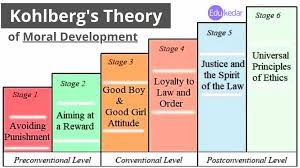Stanford law professor Randall Ralph Richard Banks says that many things are going on in society and that “focusing only on race is a mistake. Once you start to divide society into the oppressor and the oppressed and the black people are always on the downside and the white people are always the possessors of privilege, I think that’s a mistake. It’s a mistake to fixate on the idea of white privilege because most white people in American society are not and don’t feel themselves to be privileged. Most white people in American society are actually struggling. They’re struggling to raise their children. They worry about whether their children’s lives will be better than their own. They confront all manner of illness and distress and economic anxiety. So it’s both analytically wrong and politically misguided to promote an ideology that suggests that all white people have it good and all black people have it bad.” (Manhattan Institute 2021)
Cycleback, David. Against Illiberalism: A critique of illiberal trends in liberal institutions, with a focus on Unitarian Universalism (pp. 41-42). Center for Artifact Studies. Kindle Edition.
Some Unitarian Universalists covenant together to affirm and promote the inherent worth and dignity of every person, and justice, equity, and compassion in human relations. In light of these two principles it would seem that accusing whites of privilege automatically making them racist undercuts these two principles.
Spiritual intelligence can be thought of as being manifested in twenty one skills according to Cindy Wigglesworth in her book, Twenty-One Skills Of Spiritual Intelligence. The first skill of spiritual intelligence is the ability to observe and monitor one’s own worldview. To what extent does an individual know what makes them tick? The idea of the ability to observe and monitor one’s own worldview can be extended to families, organizations, and cultures.
The skill of observing one’s own worldview can be pursued by answering these questions “What makes you tick? What makes your family tick? What makes your organization tick? What makes your culture tick?”
David Cycleback’s book, Against Illiberalism takes a look at what makes the UUA and some congregations tick as they shut down the free and responsible search for truth and meaning in the face of the imposition of Critical Race Theory as the current dogma of the UUA being imposed on its member congregations.
Cycleback and others have argued that the current policies and programs of the UUA regarding governance with the imposition of CRT are antithetical to UUs principles. This is a major problem interfering with the good functioning and growth of the denomination.
What is to be done?
The first step is to name the problem why Cycleback does very well. Be able to state it in your own words in one sentence.
The second step is to work with others to diminish the UUA’s policy of shutting down the free and responsible search for truth and meaning by shaming, marginalizing and excommunicating UU members.
The third step is to support and lift up all ideas and observations for consideration in the articulation of our faith.
The fourth step is to continue to practice the UU principles in one’s daily life, in one’s family, organizations, community, and culture.
Twenty-one Skills Of Spiritual Intelligence by Cindy Wigglesworth will be the UUAWOL book of the month for September, 2022
If you would like to join the UUAWOL book discussion group via email send a request and your email to davidgmarkhkam@gmail.com



